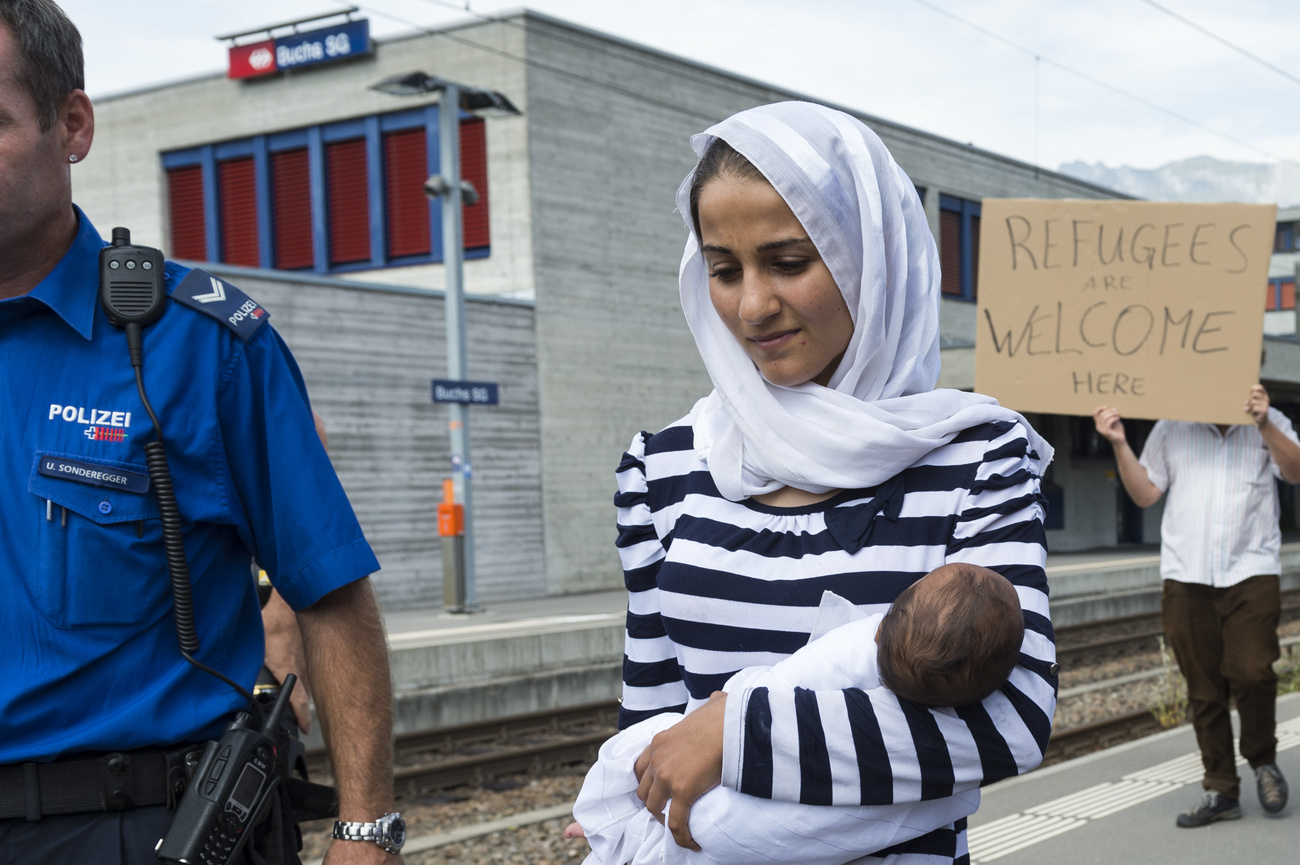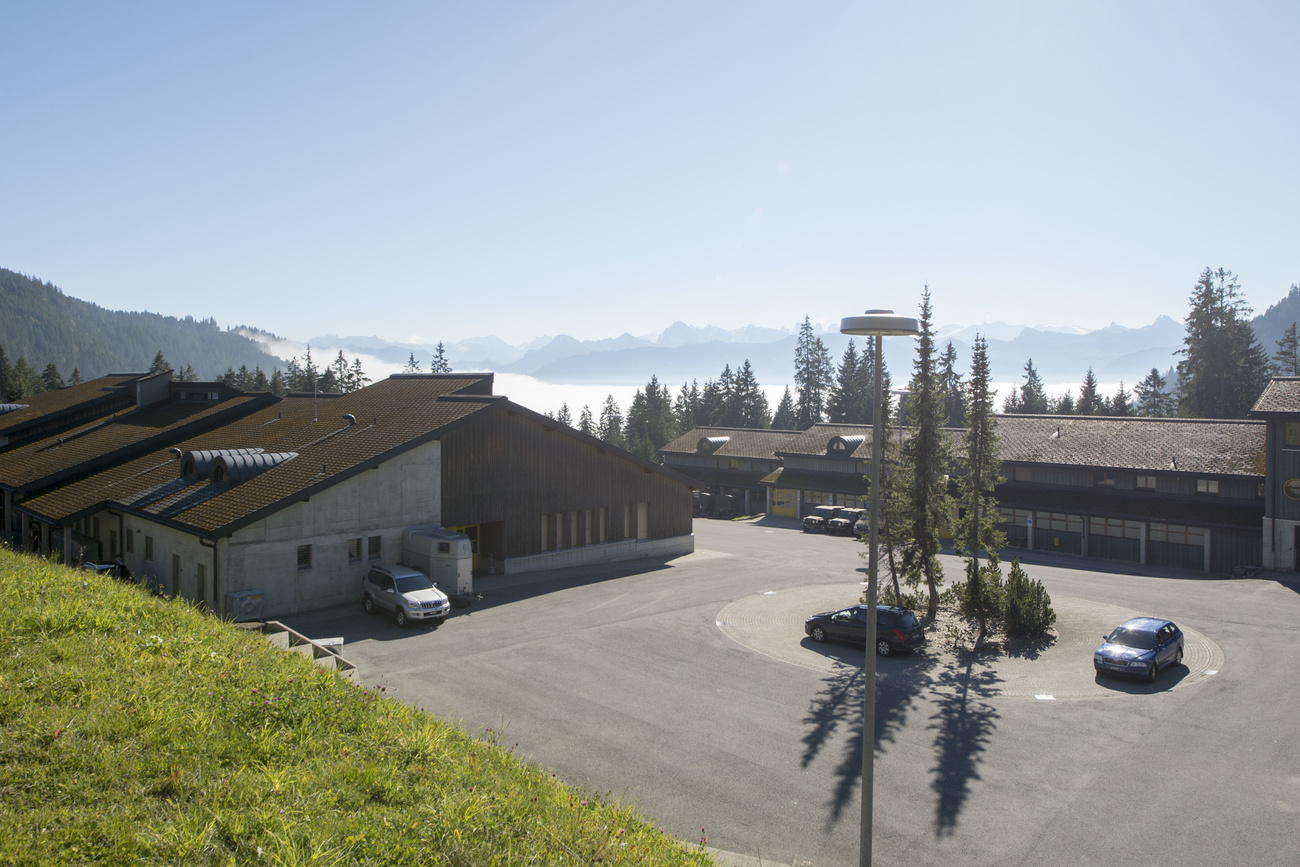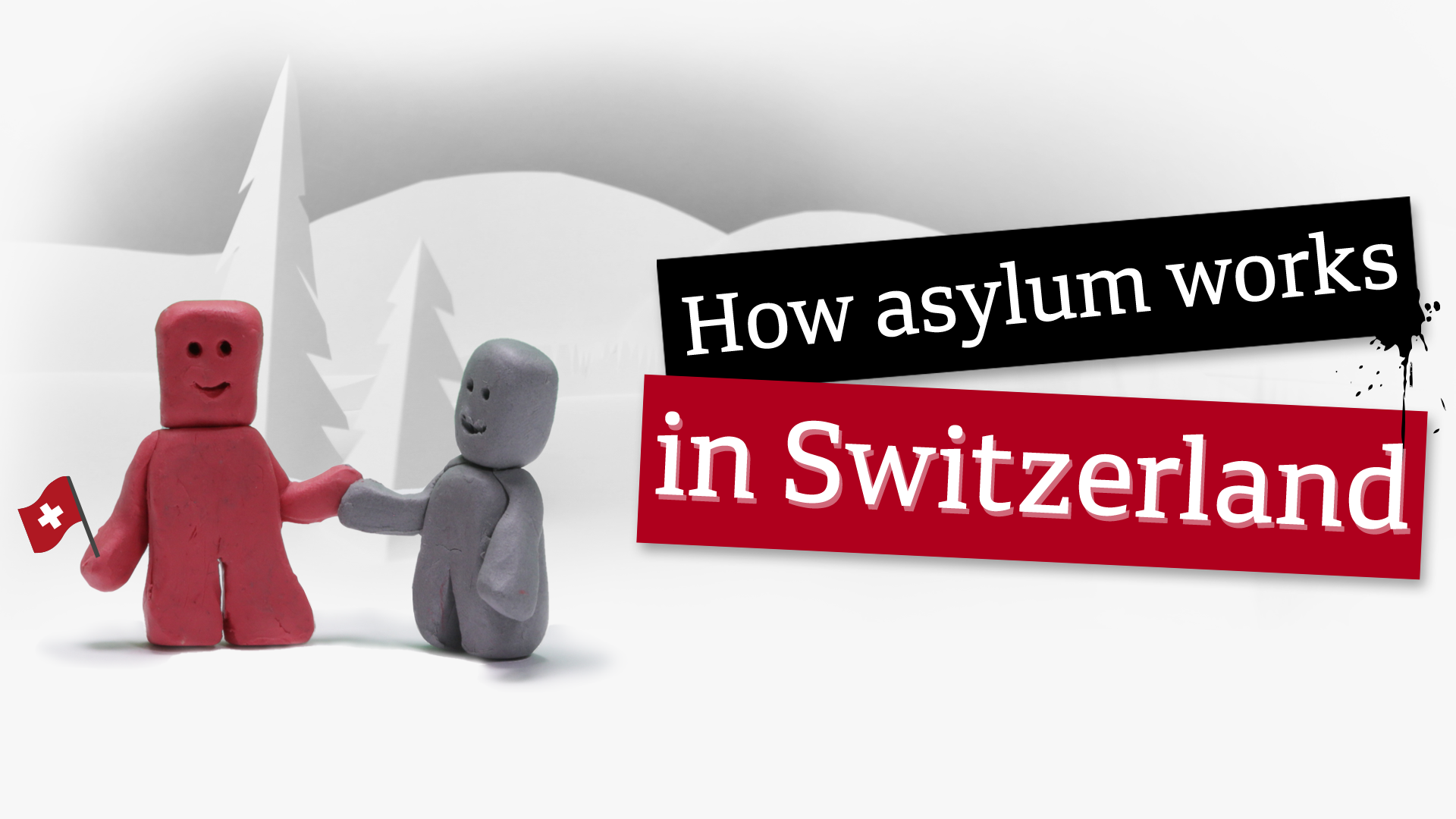Swiss minister defends approach towards transiting migrants

Justice Minister Karin Keller-Sutter has rejected suggestions that Swiss authorities are simply “waving migrants through” on the asylum route.
On Sunday, the deputy leader of Germany’s CDU/CSU parliamentary group told the NZZ am Sonntag paper that reports of Swiss border guards allowing asylum seekers to pass through Switzerland to reach their preferred destinations – such as France or Germany – was a case of “national egoisms [which] are damaging the Schengen Area”.
Andrea Lindholz was specifically referring to the situation at Switzerland’s eastern border, where up to 1,000 migrants per week, mostly young Afghans, are currently arriving but not applying for asylum.

More
‘Switzerland is violating the Dublin accords by letting migrants pass through’
Keller-Sutter rejected the idea that letting the migrants move onwards amounts to a flouting of the “Dublin” rules of asylum for the 26 Schengen states: “if these people don’t apply for asylum, and simply travel onwards, then there is no Dublin process,” Keller-Sutter told Swiss public television SRF. Police can carry out checks, but cannot detain the migrants, she said.
Keller-Sutter added on Monday that she had also since contacted the German interior minister, who was for her part “a bit surprised” about the criticism reported in the Swiss press; notably, a spokesperson for the German Federal Office for Migration and Refugees had also told the NZZ am Sonntag that the Swiss practice was a violation of the rules.
Germany and Switzerland continue to cooperate well and to work together to tackle illegal migration, Keller-Sutter said.
Dublin difficulties
Dublin rules say the Schengen state responsible for processing an asylum application is generally the country of “the first point of irregular entry”. However, since 2015 and the large numbers of migrants arriving in Europe, policymakers in Brussels have been trying to reform the process to reduce the burden on border states like Greece and Italy and to redistribute the migrants more equitably across Europe.
In mid-October, the number of irregular crossings into the European Union reached its highest level since 2016, the European border security agency Frontex said.

More
Swiss migration authorities struggling with ‘overlapping crises’

In compliance with the JTI standards
More: SWI swissinfo.ch certified by the Journalism Trust Initiative



You can find an overview of ongoing debates with our journalists here. Please join us!
If you want to start a conversation about a topic raised in this article or want to report factual errors, email us at english@swissinfo.ch.